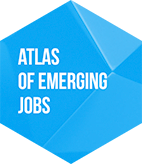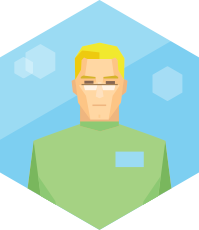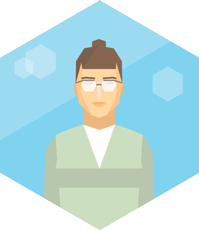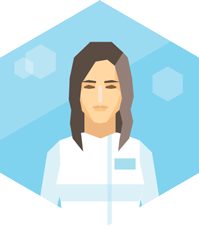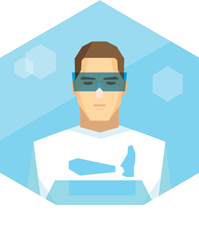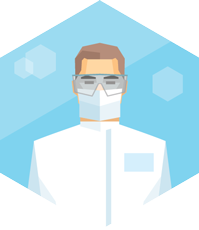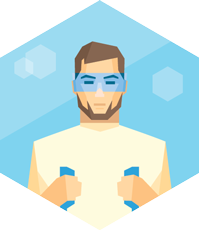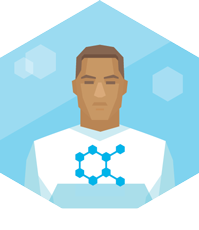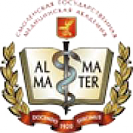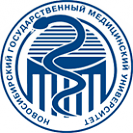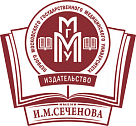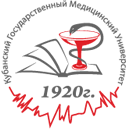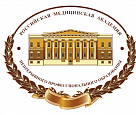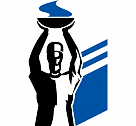Healthcare
Healthcare has always been a vital part of human life, and its significance will only continue to grow in the future; even today we can see life expectancy growing, which means increasing attention to human health, from inception and throughout the entire life, while the attention of medical science is shifting toward age-related diseases and health support.
DNA research has launched a new era in medical science, with doctors switching from diagnosing and treating diseases of separate organs and tissues to a holistic approach to human health. As gene analysis becomes an affordable service, every patient will soon have their own “natural medical record” (his own genetic code, decoded by specialists) that they will show to their doctor at a consultation. First of all, this approach provides a boost for the development of preventive healthcare, which aims to identify and prevent potential diseases at early stages. In addition, mass treatment methods are giving way to individual therapy at the genome level. Moreover, biotechnology is already broadly applied in healthcare, such as in the development of medicines and growing of transplantable organs and tissues. Robotics is also making a contribution, as automatic devices boast better precision than human surgeons, while carefully designed robotic prostheses, apart from compensating for disabilities, may open new horizons for people.
Future medical science will enable highly accurate diagnoses throughout the life of a person and an opportunity for people to predict diseases that may affect them and their children in the future. Another benefit will be the ability to study in detail the genetic characteristics of an embryo and alter some of them to prevent lethal hereditary diseases.
Computers will be used to simulate personal development scenarios of a disease, to work out a treatment method suitable for a particular case. Special robots will perform surgeries with minimal damage to tissues in order to reduce the risk of infection and avoid post-surgery scars. Robotic prostheses for limbs and certain organs will become highly sophisticated as well as affordable. Special “replaceable parts” will appear for different activities. For example, there is already the Cheetah running prosthesis, while American drummer Jason Barnes, who lost his right hand, has an artificial hand, with which he is able to play complex drum solos.
Network-enabled microdiagnostic devices will immediately alert a doctor about any significant changes in the condition of a patient. The same devices will enable patients to receive advice from any specialist through cloud bases. Biological feedback systems are gaining popularity, such as fitness trackers that analyze the user’s physical activity and quality of sleep, or neurogadgets tracking brain activity. These devices will become more common as their accuracy and sophistication increase.
Donor tissues and organs will be grown in laboratories from biofibres that are not rejected by the body. As early as 2006, English scientists managed to grow a small liver from cells taken from the blood from a baby’s umbilical cord. Not long ago, a team of scientists from the universities of Sydney, Harvard, Stanford and Massachusetts Institute of Technology announced that they had created an artificial section of the circulatory system. These technologies are still in their testing stage and are not used in actual surgeries, but this is a matter of little time.
Professions
Medical data manager
Specialist with good IT knowledge, building and managing physiological databases, and producing software for treatment and diagnostic equipment. The Big Data revolution is happening in healthcare nowadays, providing scientists with a priceless opportunity to quickly collect and analyze vast amounts of information. This means that a good medical database manager will never find himself without a job.
Trends
Professional skills and abilities
Medical equipment designer
Specialist in design and computer graphics, material science, strength of materials, machine parts, and electric appliances; capable of spatial thinking, understanding human anatomy and physiology, and is familiar with biocompatibility of materials and devices, and is an expert in medical and technical safety.
Trends
Professional skills and abilities
Bioethicist
Specialist providing regulatory and ethical framework for medical, diagnostic and bioengineering centers engaged in transplantology and genetic modeling. No advanced laboratory will manage without advice from a bioethicist, especially in dealing with organ cloning and serious interference in embryo genes. It is not accidental that Yale University, a leading American school, has already launched a curriculum in bioethics at the faculty of medicine.
Trends
Professional skills and abilities
Genetic consultant
Conducts primary and scheduled genetic analysis in a diagnostic center, processes data from diagnostic devices, and provides an opinion and further treatment recommendations. Genetic analysis allows for the identification of cancer markers, diagnosis of hereditary diseases, determination of the specifics of a patient’s metabolism and study of diseases caused by bacterial infections. The most popular genetic screening service is provided by U.S. company 23andMe. Commercial genome studies are conducted in Russia as well (although they are more expensive), for example, by companies such as Genoanalytica and Gene Family Health.
Trends
Professional skills and abilities
Online doctor
Highly qualified diagnostician, familiar with information and communication technologies, able to determine a diagnosis online. Focused on provisional diagnosis and prevention. These specialists may be involved in remote mass preventive medical check-ups, or provide support for data centers processing information from personal diagnostic devices and health portals. Online medical services are already a reality, and very soon doctors will be able to receive various data about a patient’s health from wearable gadgets. Remote diagnoses will become more accurate, and instead of unconvincing online consultations conducted in a Q&A form, we will receive top-class services provided by well-trained specialists.
Trends
Professional skills and abilities
Old-age health consultant
Sociomedical expert developing balanced solutions for problems of the aging population. This specialist will help you adjust your lifestyle or choose a suitable diet and physical training. Growing life expectancy is increasing pressure on healthcare institutions, as retired persons require medical attention more often. Any government would benefit from the country’s senior citizens maintaining healthy eating habits and a careful lifestyle.
Trends
Professional skills and abilities
Personalized healthcare expert
Studies the genetic record of a patient to develop tailored treatment plans (diagnosis, prevention, treatment) and offer respective medical insurance products. A logical continuation of the shift towards a tailored approach to treatment. Strong genetic analysis and forecasting capabilities will enable the prevention of many diseases before they require treatment, while awareness of specific risks will help to devise a customized insurance plan.
Trends
Professional skills and abilities
Medical institution life cycledesigner
Professional engaged in developing the life cycle of a medical institution or managing the same, from design to winding up. Today, hospitals are not just institutions providing a certain range of medical services. Activities related to R&D, education, training and mastering new technologies is playing an increasingly important part in the development of medical institutions. Managing sophisticated systems like these will definitely require proper specialists.
Trends
Professional skills and abilities
Tissue engineer
Professional developing the technological process and selecting materials and conditions for the formation of a particular tissue or organ. The results of his work will be used by the transplantology surgeon.
Trends
Professional skills and abilities
Robotic prosthesis and implant designer
Develops artificial functional devices (robotic prostheses) and organs compatible with live tissues. This area is growing fast: implanted electric muscle stimulators are being developed for paralyzed patients; an implant appeared recently that functions as a natural eye; limb prostheses perform more and more complex functions. While prostheses and implants are most likely to be designed by dedicated specialists, actual implantation surgeries will be performed by re-trained surgeons, otorhinolaryngologists and ophthalmologists.
Trends
Professional skills and abilities
Gene therapy expert
Specialist in genome programming to predetermined parameters. Gene therapy (alteration of the human genetic apparatus to fight diseases) has been growing at an incredible pace in the past decade. While the method is mostly tested on animals, there have been cases of successful application of gene therapy on human patients. For example, in 2014, Great Britain announced that 6 patients suffering from choroideremia (hereditary genetic disease, still incurable and causes blindness) experienced eyesight improvement through the course of gene therapy. This is, however, only the first step. The next step is to modify the genome. There has already been an experiment to change two monkey genes.
Trends
Professional skills and abilities
Molecular nutrition expert
Specialist developing tailored diets based on molecular food analysis, taking into account the results of the genetic analysis of the patient and the specifics of their physiological processes.
Trends
Professional skills and abilities
Medical robot operator
Specialist in programming diagnostic, treatment and surgery robots. Robotic surgery began to develop as early as the 1980s. The most widely known robot surgeon, Da VincI, is already used worldwide in various surgeries, from mitral valve reconstruction to spinal surgery. According to 2013 data, there are around 2,000 surgical systems of this kind in the world now.
Trends
Professional skills and abilities
Bioinformatician
In case of unusual development of a disease, builds a computer simulation of the biochemical processes of the disease to understand its root cause (discovers irregularities at the cellular and subcellular level). The specialty has been around in the western countries for a few years and is aimed at making the fullest possible use of the entire load of accumulated information (genetic, biological and medical), to develop a personalized approach for a specific patient. Translational medicine is practiced in Russia as well, with experts predicting great numbers of jobs in the industry.
Trends
Professional skills and abilities
Medical marketing expert
Specialist researching markets in pharmacology, medical services and medical equipment; develops marketing policies for companies and research centers. Another job that has existed in the world for a long time but is relatively new in Russia due to the Russian healthcare system being state-owned and state-managed until relatively recently. There are not a lot of jobs in this specialty. According to HeadHunter, there were only 6 vacancies in July 2014, but the job should be on offer in the future.
Trends
Professional skills and abilities
R&D manager in healthcare
Specialist providing communication between research, diagnostic, treatment and prevention institutions and managing cooperation programs and joint projects. His function is to put together an appropriate team of scientists, engineers, researchers and developers, focusing them on realizing potentially profitable ideas, and coordinating the entire joint process.
